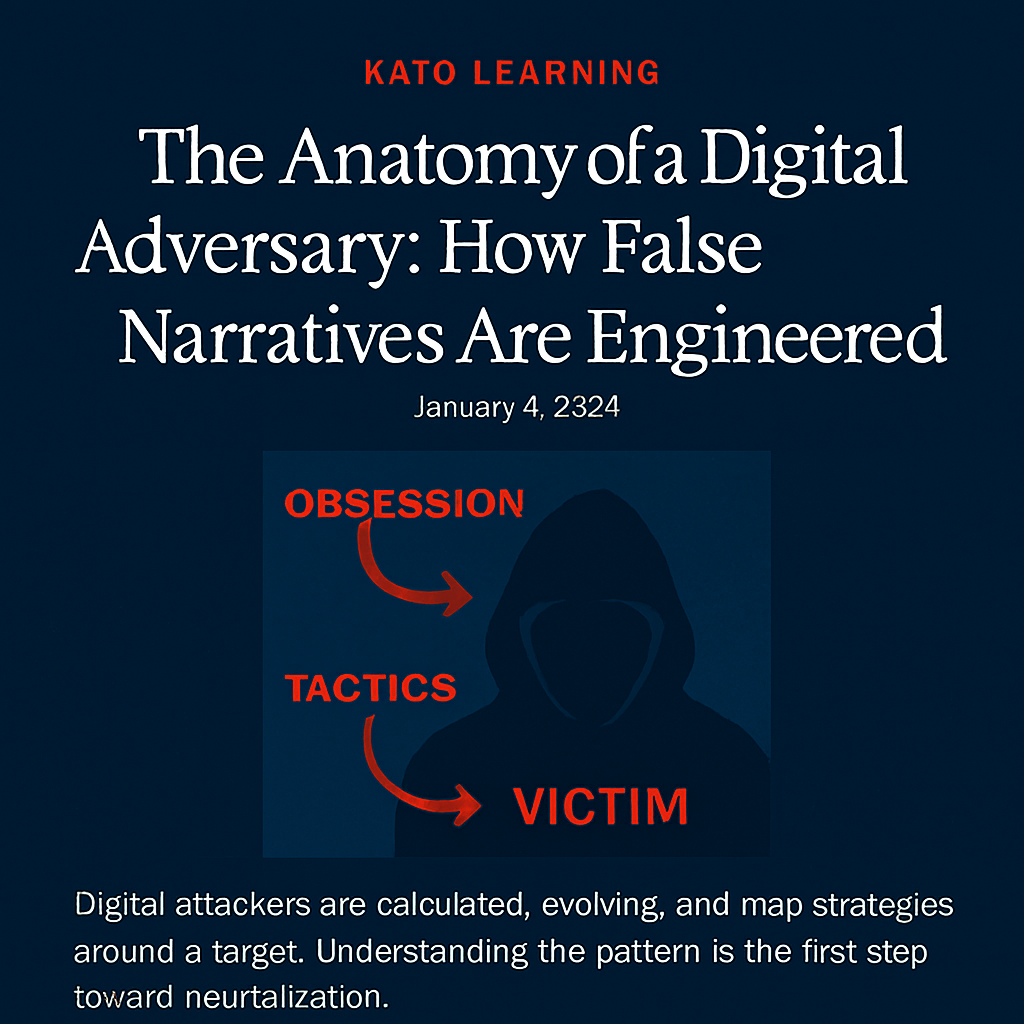🧠 The Anatomy of a Digital Adversary: How False Narratives Are Engineered
In today’s online landscape, reputational harm doesn’t require evidence—it only requires obsession.
This article explores the anatomy of a digital adversary: someone who fixates on a target, constructs elaborate stories from public fragments, and spreads defamation under the guise of truth. Their tactics are not random—they’re engineered. And they’re visible in real time.

🔍 Step 1: Mining the Public Record
Digital adversaries begin by harvesting publicly available data:
- Obituaries
- Corporate filings
- Social media profiles
- Search engine results
These fragments are stitched together to fabricate connections. A shared surname becomes a conspiracy. A business address becomes a crime scene. Truth is bent to fit the attacker’s internal narrative.
🧠 Step 2: Narrative Construction
Using these fragments, the adversary builds a story:
- They assign criminal motives to the target
- They tag institutions to imply legitimacy
- They reference unrelated events to create emotional weight
- They repeat claims to reinforce falsehoods
In one documented case, the attacker claimed a man manipulated telecommunications systems to impersonate FBI agents and sabotage legal professionals. The narrative was built from speculation, emotional projection, and obsessive repetition.
📱 Step 3: Platform Amplification
Social media platforms reward engagement, not accuracy. That means:
- Emotional posts outperform factual ones
- Tagging high-profile accounts increases visibility
- Repetition tricks algorithms into treating lies as trends
The adversary doesn’t need followers—they need friction. And the platforms provide it.
⚠️ Step 4: Escalation
As the narrative grows, so does the risk:
- The attacker may reference family members
- They may attempt real-world contact
- They may harass third parties—lawyers, employers, even children
In the case cited, the attacker claimed to have physically visited institutions and accused the target of manipulating ACH banking systems and IRS records. This isn’t just reputational damage—it’s a threat to safety.
🛡️ The Defense System
Victims of digital adversaries need more than sympathy—they need structure. That’s why some build systems:
- A Front-End Reporting Tool to log defaming content
- An Incident Manager to escalate and track rebuttals
- A Directive Engine to formalize protocols and psychological profiles
- A Relearn Cycle to absorb and reinforce defense logic daily
This isn’t just reputation management—it’s digital adjudication.
🔚 The Takeaway
Digital adversaries don’t operate in chaos—they operate in architecture. They weaponize fragments of truth to build false narratives. But with the right tools, structure, and clarity, even the most engineered attack can be neutralized.
Because in the digital age, defending your name means understanding the anatomy of obsession.
Views: 0